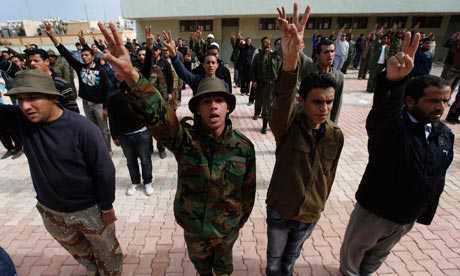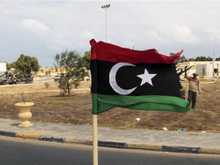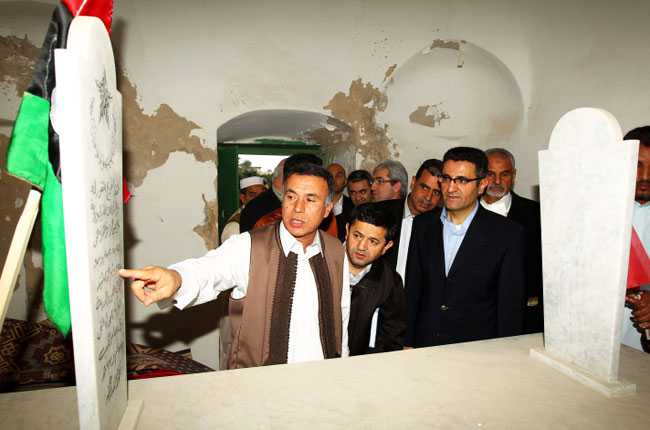By Nicolas Cheviron (AFP) – 17 hours ago
ISTANBUL — The war of words between France and Turkey escalated dramatically on Friday, when the Turkish premier accused Paris of committing genocide in Algeria and of stirring hatred of Muslims.
Furious that French lawmakers had voted on Thursday to outlaw denial of the Armenian genocide in Ottoman Turkey in 1915, Prime Minister Recep Tayyip Erdogan hit back directly at France’s President Nicolas Sarkozy.
Earlier, Turkey’s ambassador to France had left Paris and Ankara had announced diplomatic sanctions — banning political visits between the countries — and frozen military ties between the nominal NATO allies.
“France massacred an estimated 15 percent of the Algerian population starting from 1945. This is genocide,” Erdogan told reporters, accusing Sarkozy of “fanning hatred of Muslims and Turks for electoral gains.”
“This vote that took place in France, a France in which five million Muslims live, clearly shows to what point racism, discrimination and Islamophobia have reached dangerous levels in France and Europe,” he said.
Demonstrators gathered in front of the French consulate in Istanbul, chanting “Down with France” and “Allahu Akbar” (God is greatest).
Paris appeared to have been caught off guard by the fury of Turkey’s response. Sarkozy, in Prague where he was at the funeral of late Czech president Vaclav Havel, was on the defensive.
“I respect the views of our Turkish friends — it’s a great country, a great civilisation — and they must respect ours,” he said.
“France does not lecture anyone but France doesn’t want to be lectured. France decides its policy as a sovereign nation. We do not ask for permission. France has its beliefs, human rights, a respect for memory.”
But back in France, Foreign Minister Alain Juppe admitted that the vote on the genocide law had “without doubt been badly timed”. He urged calm, while adding that “certain declarations have been excessive”.
France fought a long guerrilla war between 1954 and 1962 to try to hang on to its Algerian colony. Estimates for the number of dead vary wildly. Algeria puts it at more than a million, French historians estimate 250,000.
Citing earlier French action against Algerian rebels in the aftermath of World War II, Erdogan said Sarkozy’s father Pal Sarkozy had been a French legionnaire and should be able to tell his son of “massacres”.
But Sarkozy senior appeared on French television to mock this claim, pointing out that he had been in the Foreign Legion for only four months and had never been deployed to Algeria.
In 1915 and 1916, during World War I many Armenians died in Ottoman Turkey. Armenia says 1.5 million were killed in a genocide. Turkey says around 500,000 died in fighting after Armenians sided with Russian invaders.
France is home to around 500,000 citizens of Armenian descent and they are seen as a key source of support for Sarkozy and his UMP ahead of presidential and legislative elections in April and June next year.
France recognised the 1915 killings as genocide in 2001 and on Thursday the National Assembly approved a first step towards a law that would impose a jail term and a 45,000 euro(($60,000) fine on anyone in France who denies this.
The bill will now go to France’s upper house, the Senate, and could become law next year — although Turkey will lobby hard to prevent this.
“We are really very sad. Franco-Turkish relations did not deserve this,” Ambassador Tahsin Burcuoglu said before taking a flight home. “When there is a problem it always comes from the French side.
“The damage is already done. We have been accused of genocide! How could we not overreact? Turkey will never recognise this story of an Armenian genocide. There are limits. A country like Turkey cannot be treated like this.”
Turkey will now boycott an economic committee meeting in Paris in January — a move that will worry business leaders in both countries fearful for the fate of 12 billion euros ($16 billion) in annual trade.
And the freeze in military and political ties will hamper France’s ambition to work with fellow NATO power Turkey to bring stability to Afghanistan and Syria and to face down Iran over its nuclear programme.
Armenian Foreign Minister Edward Nalbandian thanked France, which had “once again proved its commitment to universal human values”.
Franco-Turkish relations are often tense — Sarkozy is opposed to allowing Turkey to join the European Union — but 1,000 French firms work there.
Much of Europe, including France, is facing recession amid a sovereign debt crisis, but Turkey enjoys growth rates in excess of eight percent and, with 78 million people, it is a huge potential market.
via AFP: Turkey accuses France of genocide in Armenia row.






